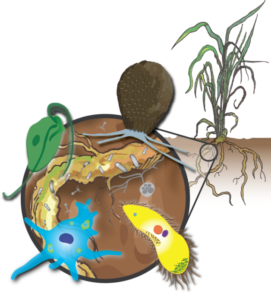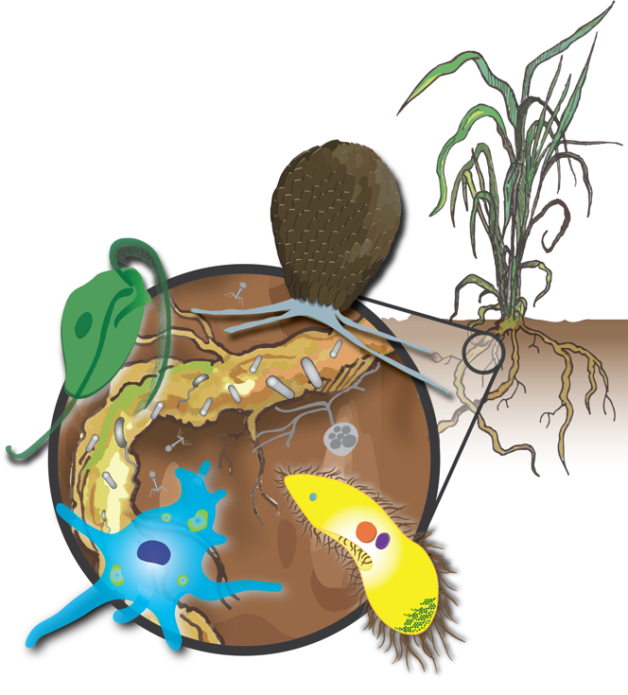
Protists, a type of microbe, are slowly being recognized as key elements of the soil and rhizosphere microbiome. (Credit: Javier A. Ceja Navarro)
A group of scientists who study the interactions between plants and microbes have published a study detailing the dynamic relationships between soil-dwelling, single-celled organisms called protists and developing plants. Protist communities near plant roots were found to respond to the different developmental stages of switchgrass, a crop with excellent potential as a bioenergy feedstock, much like bacterial communities do.
Protists aren’t a distinct lineage of organisms, but rather a diverse category encompassing any single-celled eukaryote that is not a plant, fungi, or animal. They’re found across the planet in a variety of ecosystems, yet for the majority of species, scientists are just beginning to scratch the surface of what the organism does and how it responds to the environment.
“Protists represent a new frontier in the study of soil microbial ecology,” said lead author Javier A. Ceja Navarro, a research scientist in Biological Systems and Engineering at Berkeley Lab. “Here we show that this group of organisms really must be included in microbial studies aiming to understand how microbes interact with plants.”
The project, which was the first study showing an association of protists with plants in a large-scale field experiment, was a collaboration among scientists from Berkeley Lab, UC Berkeley, Lawrence Livermore National Laboratory, the Noble Research Institute, and the University of Oklahoma.
Read more in the Berkeley Lab News Center.




